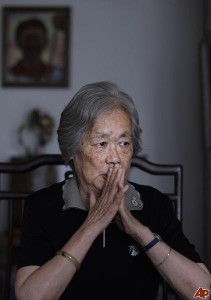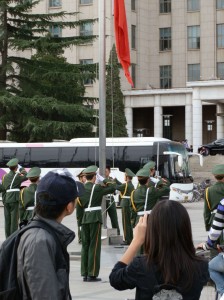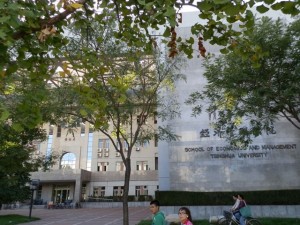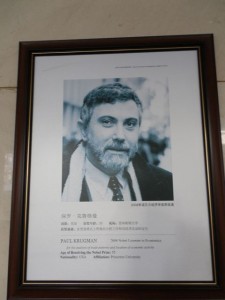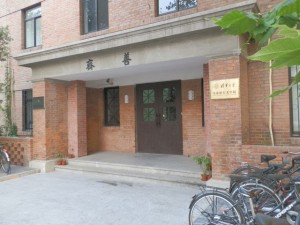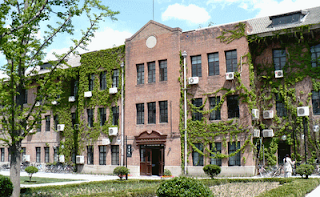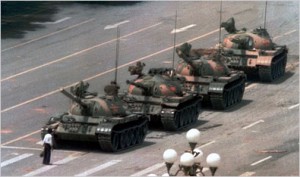 No one really knows how many people died, were permanently hurt or lost their livelihoods 24 years ago today in Tiananmen Square. The government may have records on the casualties, believed to total more than 155 killed and 65 wounded, but it hasn’t made them public. Indeed, Chinese history books barely acknowledge the event, known in China simply as June Fourth. Sadly, few Chinese have seen the iconic AP photo of the lone man standing up to tanks in Beijing.
No one really knows how many people died, were permanently hurt or lost their livelihoods 24 years ago today in Tiananmen Square. The government may have records on the casualties, believed to total more than 155 killed and 65 wounded, but it hasn’t made them public. Indeed, Chinese history books barely acknowledge the event, known in China simply as June Fourth. Sadly, few Chinese have seen the iconic AP photo of the lone man standing up to tanks in Beijing.
This extraordinary moment in recent Chinese history, though, echoes among those aware of the events at the time, both in the West and in China. Rising expectations for democracy and such freedoms as the right to free expression thrust hundreds of students into the streets on June 3 and 4. The country had thrown off the stultifying yoke of Maoism, had embraced the liberating force of capitalism and seemed to be on a road toward wider choice in everything from consumer goods to politics.
And then, of course, the road came to a dead end with tanks, bullets and tears in Tiananmen Square in Beijing. The sprawling area of monuments, museums and government offices, which today draws thousands of Chinese and Western tourists, became synonymous with oppression.
It’s hard for us in the West to grasp how disillusioning this massacre must have been for the Chinese. First, many of the pro-democracy demonstrators killed were students at the nation’s top universities; these were the best and brightest in a Confucian system that ranks intellectuals high in the pecking order. I’m sure they were students much like the bright and eager young people I taught at Tsinghua University in the fall of 2011, innocent idealists who love their country and want only to make it better. Thus, their interest in journalism.
More important, the June Fourth protesters couldn’t have been more precious to their families. Because of China’s one-child policy, these students – some still in their teens – each carried the weighty hopes and aspirations of parents and grandparents on their shoulders. Little could be more alienating or tragic for those families, who today still bear the burden of grief and fury.
”Since my son died in 1989, there’s nothing more that can scare me,” Ding Zilin, a retired professor whose 17-year-old, Jiang Jielian, was killed on the night of June 3, told the New York Times in 1999. ”I do what I choose to do according to my own conscience.”
Ding, a retired professor of philosophy at People’s University who had once been a loyal Communist Party member, led a drive then to open a criminal investigation into the events of June Fourth. It went nowhere. Ding, who had attempted suicide repeatedly after the death of her son, wound up leading bereaved parents who have continued to demand the right to mourn their children in public and to end persecution of June Fourth victims. In response, she and her husband, former People’s University Aesthetics Institute head Jiang Peikun, have been constantly harassed. Ding’s nomination for the Nobel Prize in 2003 must have been a major embarrassment for Party leaders.
Since the massacre, some at the demonstrations or — like Ding — related to demonstrators have endured house arrests, loss of work and ongoing medical problems. Qi Zhiyong, a construction worker who went to the demonstrations out of curiosity, not activism, lost a leg, his occupation and any good feelings he had toward the Party, as the Washington Post reported. The paper reported that Zhang Lin, who organized protests in 1989 in Anhui Province, has spent much of the last 20 years under house arrest or in jail, as an advocate for labor rights and democracy. Some protesters who went on to have good careers now stay quiet about their youthful activism, fearing retribution.
Chinese leaders crushed the Tiananmen demonstrations nearly a quarter-century ago out of fear that they could trigger nationwide uprisings. Since then, however, riots, protests and mass incidents have only grown, with some 180,000 in 2010 alone, as reported by the Wall Street Journal. Instability, driven by economic grievances or dissatisfaction with corruption, has worsened and is a major source of worry for the government. Chinese leaders today are desperate to manage societal transformation – which includes everything from urbanization to economic growth — while keeping a lid on the discontent and maintaining Party control.
Xi Jinping and other new leaders of China are walking a narrow and treacherous path. As economic expansion slows, disparities in wealth grow and upheaval from the migrations of millions to crowded cities worsens, they will surely find it increasingly difficult to keep order. That challenge to preserve order may underlay recent directives barring discussion of such topics as freedom of the press in universities and concerns in some Party quarters about too much Westernization.
The Party’s worries have hit home for some distinguished Western journalists recently. Peter Herford and Peter Arnett, longtime Asia hands who have taught for years at Shantou University’s journalism school, were just pink-slipped. Ostensibly, this is because they passed a mandatory retirement age of 70 for foreigners teaching in China. Herford, however, finds this puzzling because each of them passed that milestone about eight years ago.
Far less momentously, the government’s worries also hit home for me. In the last few weeks, I wanted to survey Chinese journalism students about freedom of expression and censorship, as well as the biases they see in both Western and Chinese media. I scuttled the project, however, after colleagues in China warned that the students’ answers, even in an anonymous Web-based study, might be tracked by state monitors. The survey wasn’t worth putting the students at risk.
 Chinese leaders seem to have learned the wrong lessons from June Fourth. Suppressing speech is like clamping a lid on a pot of boiling water. As the heat grows, the chances of an explosion just grow with it. No doubt, the leaders worry that the more apt comparison is to the Arab Spring, and they are determined to avoid similar tumult. Not heeding – or even hearing — the demands and discontents of the people, however, seems like a losing strategy for a government. Certainly, plenty of Chinese dynastic leaders up to Empress Dowager Longyu, ousted in 1912, learned that the hard way.
Chinese leaders seem to have learned the wrong lessons from June Fourth. Suppressing speech is like clamping a lid on a pot of boiling water. As the heat grows, the chances of an explosion just grow with it. No doubt, the leaders worry that the more apt comparison is to the Arab Spring, and they are determined to avoid similar tumult. Not heeding – or even hearing — the demands and discontents of the people, however, seems like a losing strategy for a government. Certainly, plenty of Chinese dynastic leaders up to Empress Dowager Longyu, ousted in 1912, learned that the hard way.
Suppressing the history of June Fourth, barring free speech and banning even discussion of a free press, won’t keep Chinese people from learning about these things. Even keeping June Fourth off the Internet in China won’t do the trick. Do leaders really not think the 190,000 Chinese now studying in the U.S. won’t hear about it? What of those studying elsewhere, including in Hong Kong or other parts of Asia? Next year will mark the 25th anniversary of the tragic event. An even brighter spotlight will be shone on the massacre then. Facing up to that dark history in the coming year might be a far better approach than tightening the lid on that bubbling pot even more.

